Allow us to make your residential, commercial, or industrial premises beautiful again. We are the best commercial epoxy flooring experts in California; call us today for a free estimate of the highest quality epoxy.
If you’ve been wondering where to source quality, durable, yet high-performance flooring for your building in California, we’ve got you covered with epoxy flooring solutions for your epoxy garage floors, business premises, and industrial areas.
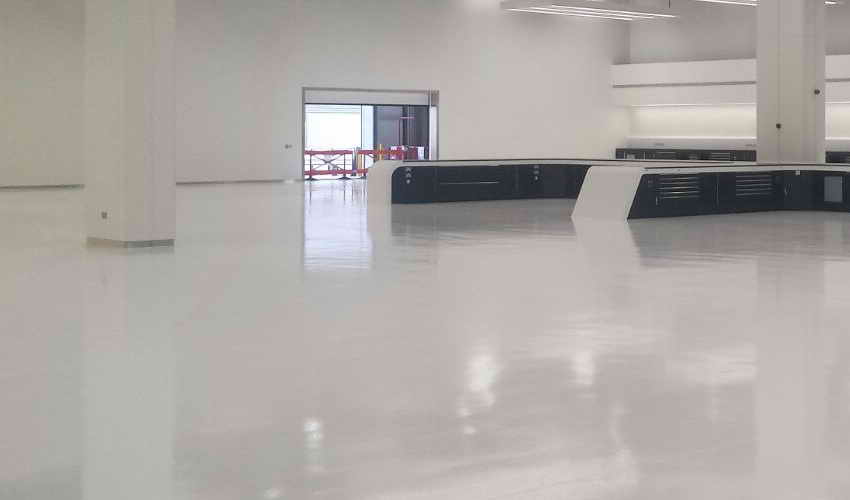
You won’t have to worry about chemical spills, oil spills, wear and tear with our high-performance flooring solutions. Read on if you’re curious how professional epoxy flooring in California can transform your industrial premises.
What is Epoxy Flooring?
Epoxy flooring is also known as polymer or resinous flooring. The flooring consists of two parts- a resin and a hardener. This floor type can be placed over different substrates such as tiles, wood, concrete, and so on. When the epoxy is placed on any substrate, it undergoes a chemical reaction that hardens, forming a hard plastic.
Epoxy Flooring vs. Epoxy Floor Coating
Most people use the terms epoxy flooring and epoxy floor coating interchangeably while they are different. The difference between the two majorly lies in the depth of the application. Epoxy flooring is about 2 millimeters thick, while the coating is often less than 2 millimeters thick.
Types of Epoxy Flooring
There are different types of epoxy flooring systems for various applications. Let’s take a look at each type.
– Epoxy mortar floors
These types of epoxy floor coatings are made from solid epoxies and graded (quartz) sand. If you’re looking for flooring that can withstand any form of a chemical reaction or high traffic, then this is your best bet. Epoxy mortar floor can also repair any cracks before applying to the floor as it creates a great seal.
Epoxy mortar floors are the best for commercial buildings such as restaurants, hospitals, garages, and warehouses.
– Epoxy flake floors
The epoxy flake floors consist of flaky material that gives the floors a hue of color and versatility. If you want to customize your floor, then the flake floors best suit your needs. Besides the shimmer of color, epoxy flake floors also have an anti-skid feel making them ideal for hospital buildings, commercial kitchens, showrooms, and other areas that receive daily high traffic.
– Quartz epoxy flooring
This epoxy flooring is made from epoxy polymer resin and quartz grains. Thanks to the stained quartz grains, the flooring is best suited for areas that need that decorative aspect. The flooring is easy to clean and maintain, making it ideal for spaces requiring maximum hygiene like hospitals, cafeterias, locker rooms, offices, and restrooms.
– Self-leveling epoxy
The self-leveling epoxy comes in different colors and sizes. The versatility and texture of the flooring material make it ideal for use in cracked spaces or old concrete floors. Upon application, the flooring levels give the area a smooth neat appearance. You can utilize the self-leveling epoxy flooring on warehouse buildings, showrooms, manufacturing buildings, and other high-traffic and heavy load areas.
– Anti-static epoxy floors
Anti-static epoxy works best in areas that utilize static electric charge. The flooring absorbs any static charge preventing any discharge. Buildings that use highly flammable materials should make use of this flooring type to reduce any fire hazards. The ideal places to use the anti-static epoxy floors are hospitals, pharmaceutical buildings, electronic buildings, and any other place that can trigger static fires.
What are the Benefits of Epoxy Flooring?
If you’re thinking of installing epoxy flooring but are unsure of the benefits, here are some of the benefits.
– Durable
With proper maintenance, epoxy flooring can last anywhere between 10 to 20 years. The materials used to make epoxy (polymer resin and hardener) create a compact surface that can withstand any heat, foot traffic, machinery traffic, chemical spills, and much more without any wear and tear.
– Versatile
Epoxy coatings come in different colors and sizes, making them perfect for customization. You can even have your logo embedded on the floor! Epoxy will help you give your space an attractive appearance.
– Safety
Any commercial business owner is always worried about any accidents at the workplace. With epoxy coatings, you can say goodbye to slip and fall accidents as it has amazing anti-skid properties. Safety should be the number one priority for any company or homeowner.
– Easy to maintain
You don’t have to worry about endless hours of scrubbing with quality epoxy flooring system. With a simple mob and some water, you are good to go. The floor is non-porous and doesn’t allow those stubborn stains to stick on the coating. Epoxy coatings will serve you for many years to come.
– Environmental friendly
Since epoxy floor coatings are non-porous, you don’t have to use very harsh cleaning agents that are harmful to the environment. During application, epoxy leaves little to no waste compared to other flooring types. The flooring also rarely flakes to cause any harm to the environment, and even if it does, it is 100 percent safe.
– Cost-effective
If you compare the cost of epoxy per square meter with other types of flooring systems, it is extremely low. You also get to save on the low cost of maintenance and that it’s durable so that you don’t need to replace it often.
– Withstands heavy usage
When buying any floor system, you want to make sure that it is strong enough to withstand any high temperature, heavy human traffic, and machinery. Epoxy gives this quality and so much more as it is three times stronger than concrete flooring.
– Stain and water resistance
Spillages are common in any residential or commercial building. With epoxy flooring, you don’t have to worry about chemical, oil, or water stains common with other types of flooring like laminate or wood. When a spill happens, wiping it down with a mop will sort the mess without leaving any permanent damage.
– Easy to clean
Unlike tiles and laminates, epoxy flooring is poured and doesn’t have any joints or seams. Joints and seams often create a challenge during cleaning because the crevices are a good hiding spot for germs and bacteria. It is no wonder most hospitals and food processing plants prefer epoxy floors due to the ease of cleaning.
How much does it Cost for Epoxy Flooring?
The cost of epoxy flooring is a sum of the materials and installation. The epoxy mixture comes as liquid sold in gallons. The more epoxy in the mixture, the more expensive it is. The cost of one gallon of epoxy, depending on the composition, ranges between $30 and $150.
The installation cost of epoxy floor coatings depends on whether you decide to install it yourself as a DIY project or hire a professional epoxy installation company in California. If you DIY, the installation kit costs about $600. It is important to note that the process of epoxy installation is complex, and a slight mistake with the layering or drying could lead to flaking over time. We, therefore, advise our clients to hire a professional to avoid irreversible mistakes. We are the best when it comes to commercial epoxy flooring in California!
How to Prepare a Surface for Epoxy Installation
If you are thinking, “I have made up my mind, how do I prep my floor for epoxy?” If you hire us for commercial epoxy flooring systems installation, we will do all the hard work, including the floor preparation.
Ideally, we first clean the substrate to ensure that it is free of any contaminants before a new floor is installed. Contaminants are things like oil, grease, wax, or mold. For the cleaning process, we use appropriate solvents such as acetone or lacquer thinner. The main aim of cleaning is to make sure you don’t seal in contaminants with the flooring.
The next step involves drying the site using an air dryer, heat lamp, or hot air gun. Drying ensures proper adhesion during the bonding of epoxy and the substrate. After drying, you need to remove any old flaky or chipped flooring in preparation for sanding.
The process of sanding helps to create the right texture for epoxy to bond to during commercial epoxy flooring installation. We mainly use 80-grit aluminum oxide paper to provide the right consistency. Finally, we dust off any particles that remain after sanding.
How long does it take to install a Building with Epoxy?
Being the best commercial epoxy flooring system installation company in California, we have the necessary machinery and labor force to install a site with epoxy systems within the shortest time possible. We take one day to install any premise with epoxy, but we recommend that you don’t use the floor until after a few days to allow for proper curing.
How much do contractors charge for the epoxy floor?
Different commercial epoxy contractors in California will charge different rates depending on the type of epoxy flooring system you need, the size of projects, and the level of customization required. One square foot of epoxy system flooring will cost you about $7 for both the materials and the labor cost. Water-based epoxy is cheaper than solid epoxy, but the benefits of solid epoxy are more.
A water-based epoxy system costs between $0.37 and $1.20, while solid epoxy coatings cost anywhere between $1.40 and $2. Labor ranges from $2 to $5 per square foot, depending on your commercial epoxy contractor.
How much do epoxy contractors make?
As noted above, epoxy coatings installers in California will charge $2 – $5 per square foot. Other contractors will charge an hourly rate that averages at about $14.74 per hour according to payscale.
How much does it cost to epoxy a garage floor professionally?
A typical home in California has a two-car garage. Average two-car garage floors are about 576 square feet. If you decide to buy a water-based epoxy, you will spend about $213, and if you choose to use a solid epoxy, it will cost you $806.
Since labor costs from $2 to $5 per square foot, you may spend $1,152 and $2,880. The cost of epoxy garage floor could also vary depending on whether the foundation needs repair or not. You cannot pour epoxy on a garage floor that has cracked because the cracks will remain visible after the garage floor dries. Notably, you cannot install epoxy flooring on a garage whose foundation is damaged. You would need to repair the garage foundation first or redo it afresh.
Is epoxy flooring good for a commercial kitchen?
It is possible to get confused about the best type of flooring for your commercial kitchen with so many flooring options in the market. Epoxy is hands down the best flooring for any commercial kitchen. Here are some of the reasons why.
– Can withstand traffic
Imagine the number of customers that frequent a restaurant every day. You want to make sure that you have quality flooring that can withstand heavy usage without any damage. A typical floor type in many commercial kitchens, concrete is prone to chipping and flaking over time. Invest in a long-lasting floor for your commercial facility.
– Easy to clean
A commercial kitchen will become dirty from frequent footsteps, oil spills, food and drink spillages, and grease. As much as concrete floors and tiles are classic, they are porous, making it difficult to clean them. Epoxy is, however, is easy to clean without requiring very harsh cleaning agents.
– Achieve an aesthetic appearance
Epoxy floor coatings are aesthetically pleasing to the eye when used on any facility. Commercial kitchen facilities should be attractive to potential customers and employees. Epoxy floor coatings come in different designs and colors to help you achieve your desired look.
– Durable
Your commercial kitchen in California should be a profit-making venture. As a business owner, the sole aim is to maximize profits while minimizing losses. Constant concrete floor repairs can affect your earnings. Epoxy is highly durable, thus giving you value for your money.
What is the Process of Installing Epoxy Flooring?
If you are wondering how an epoxy floor is installed on a facility or garage, here is a detailed guide.
– Test the floor for moisture
You cannot use epoxy floor coatings on wet surfaces. If there is no moisture system then you can test for moisture using a plastic bag by securing it around the floor for 24 hours. After 24 hours, lift the plastic bag and check underneath whether there is some moisture. If your floors have accumulated some moisture, then you cannot install epoxy on them.
– Check if the floor has a concrete sealer
You cannot use epoxy floor coating on a surface where a concrete sealer has been used before. To check if the surface has a concrete sealer, pour a cup of water on the floor. If the water clumps together, it means there is a sealer.
– Check if the floor is dry
If you use epoxy on a surface that is not dry, the flooring could deteriorate over time. If you’ve just installed a new slab, you need to wait 1 to 2 months for it to dry completely before installing the epoxy coating.
– Remove painting
Most paintings are made of polyurethane or latex and aren’t compatible with epoxy coating. It is therefore imperative to strip the current floor system of any painting. Paint blasting is the most common method used.
– Cleaning
Cleaning involves degreasing, dusting, and removing any residues from the floors. You can use a degreaser for the grease and oil, while sanding can eliminate any rubber residues. Finally, clean the floor using a pressure washer and dry it out. Finally, use a vacuum cleaner to suck out any debris that could have been left on the surface.
– Etch the floor
To etch the floors, you will need some hydrochloric acid which you can find at your local stores. For every 50 square feet, you will need about 0.25 gallons of hydrochloric acid.
Mix the acid with water in a ratio of 1:3, then spray the mixture all over the floor using a spraying can. Wait for about 10 minutes so that the diluted acid stops fizzling.
– Neutralize the floors
Now, you will need to remove the acid, but you first need to neutralize it. You will mix some baking soda with water for the neutralization process and pour the mixture over the diluted acid.
– Rinse and dry the floor
Finally, rinse the floor using some clean water and drain the fluids into a drainage outlet. Then, dry off using a mob and allow the surface to dry completely for about 24 hours.
– Seal the cracks
After your surface is dry, check for any cracks or holes. You will use an epoxy crack sealer and a knife to spread and level out the sealer.
– Mix epoxy
Wear protective gloves and a mask before mixing epoxy products because some, especially solvent-based floor coating, can emit hazardous fumes.
– Apply a primer
Apply a primer if the surface has visible cracks. This step is optional if you have used a sealer. However, a primer gives your floor coating a better bonding base.
– Epoxy application
For a surface of about 450 square feet, you will need about 2 gallons of epoxy per coat. You need to do at least two coatings for the best results. Use a napkin roller measuring about 0.75 inches thick. Each epoxy gallon lasts about 40 minutes before it dries, so you have to apply within this time before it hardens.
Allow the first coat to dry before applying the second one. The first coat can dry within 24 hours, but you should follow the manufacturer’s instructions for quality epoxy results.
The Bottom Line
Epoxy flooring is versatile, durable, easy to clean, maintain, and economical. Epoxy flooring is ideal for surfaces such as driveways, residential buildings, industrial buildings, garage floors, and commercial places. Call Extreme Industrial Coatings today for a free estimate of your epoxy floor coating. Customer satisfaction is our greatest priority!

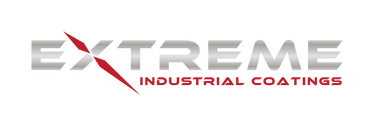
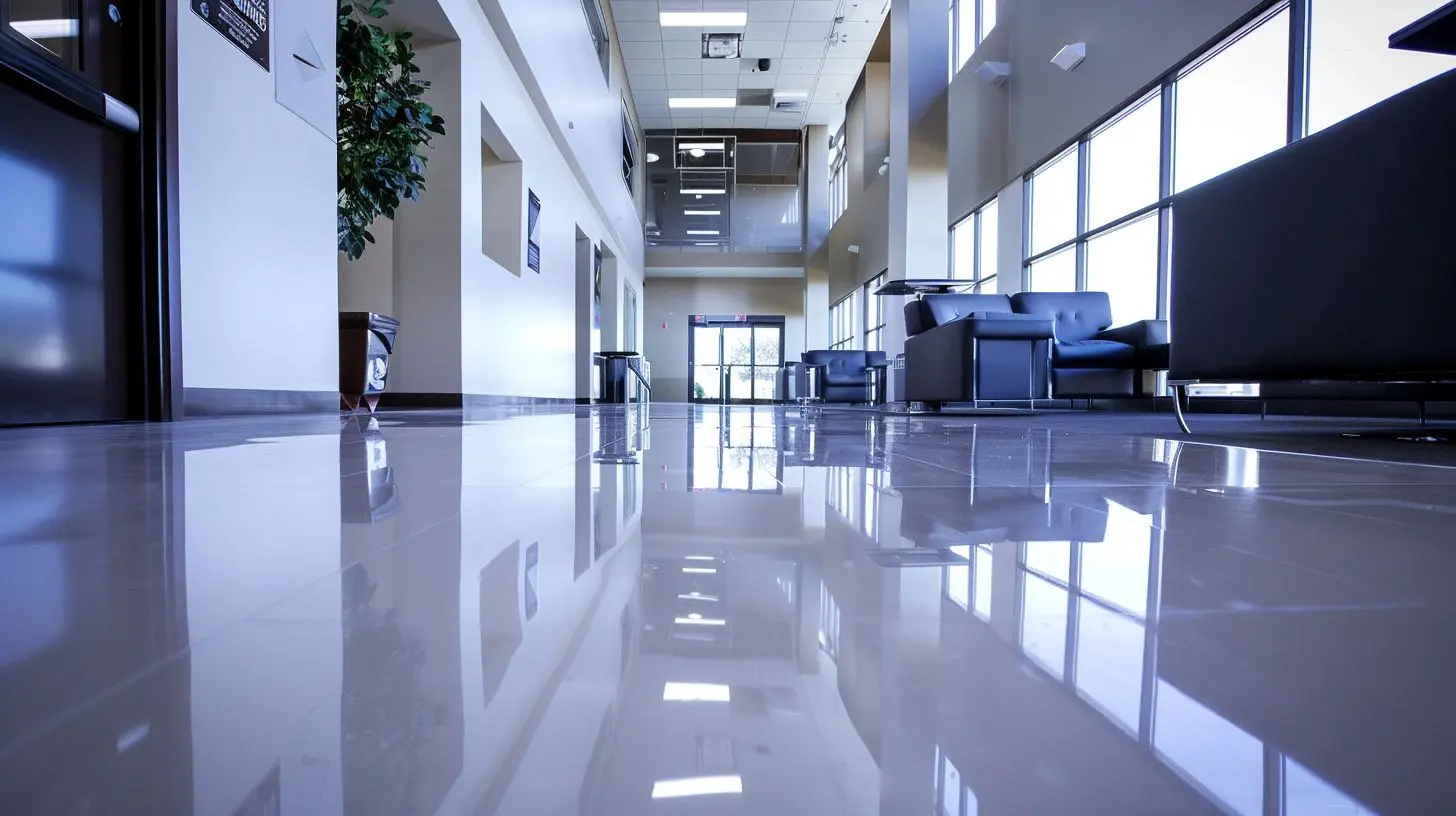
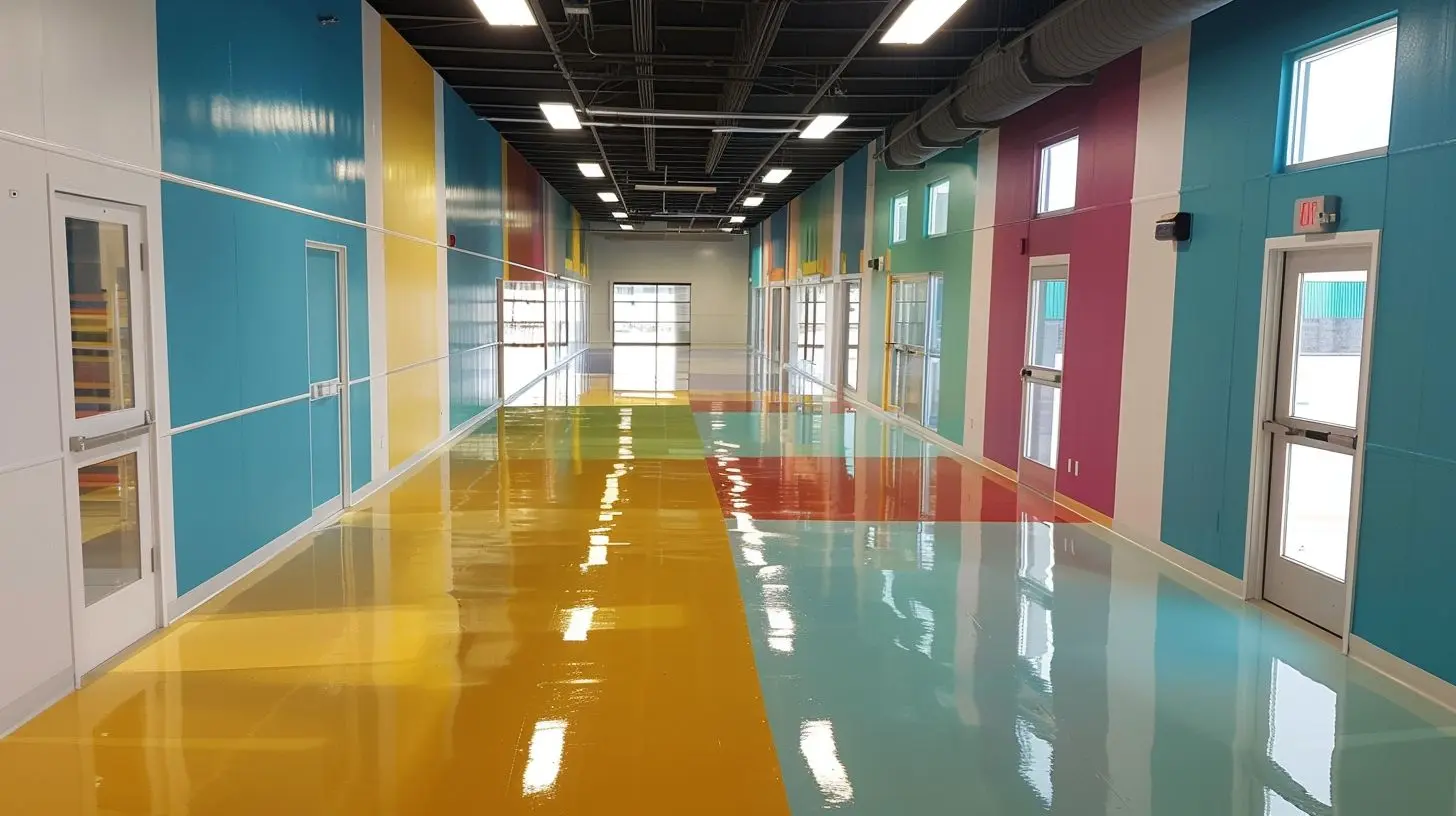
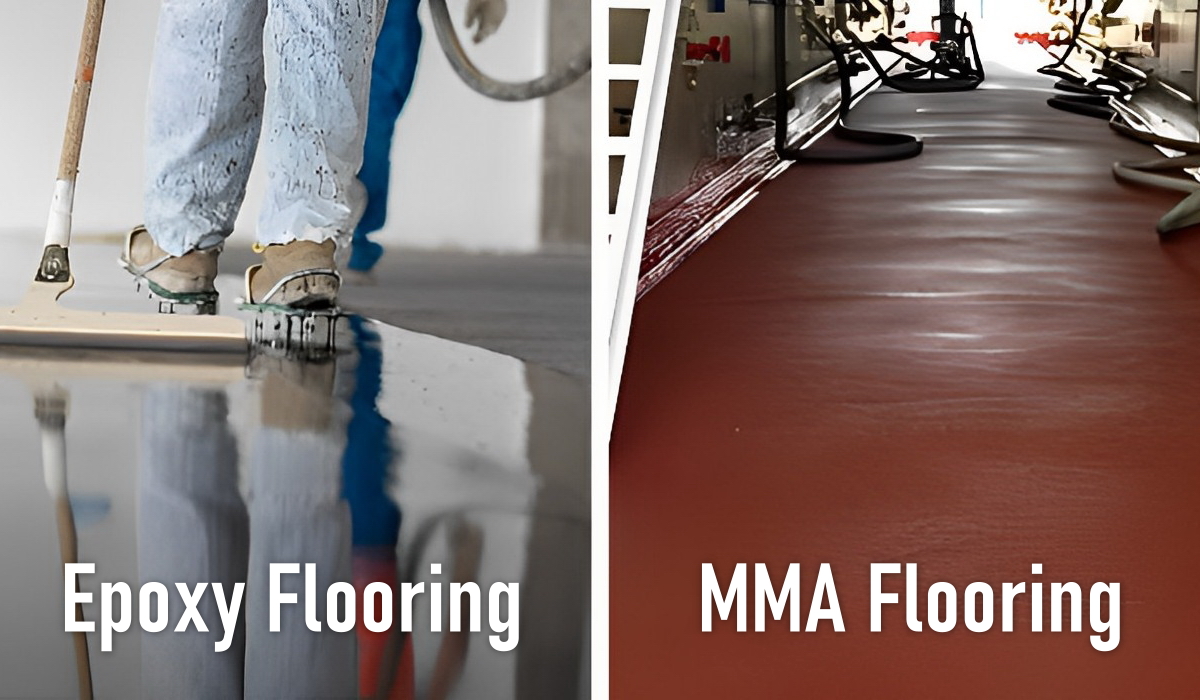
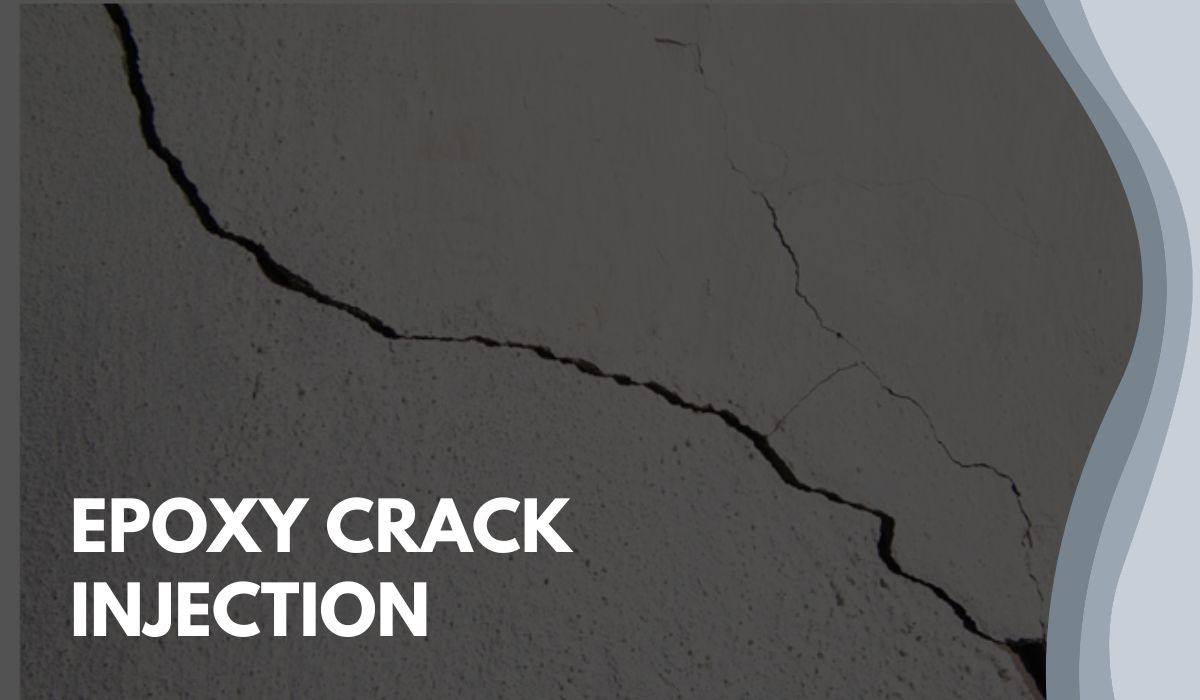
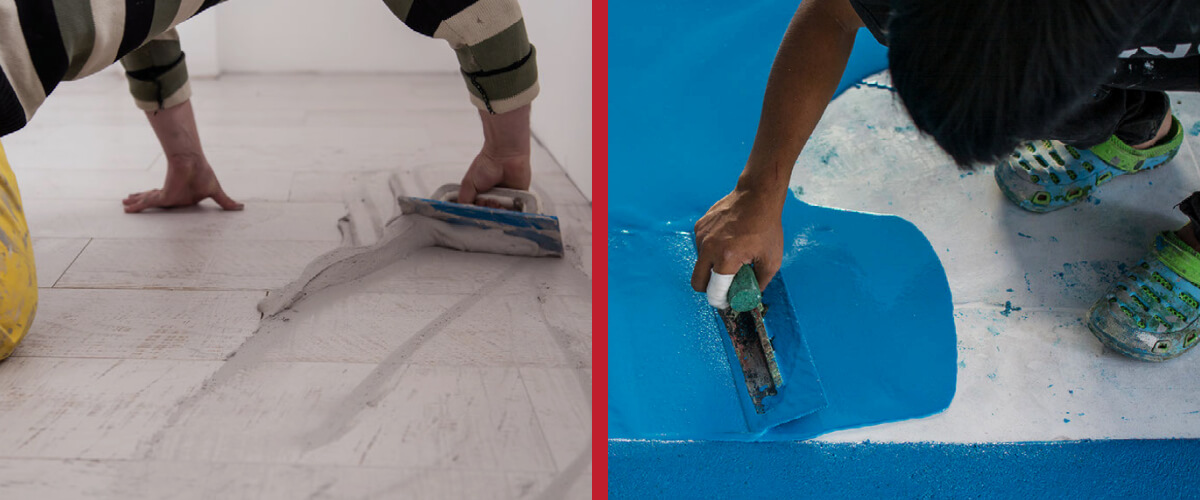
Leave A Comment